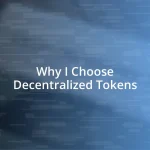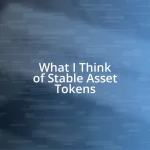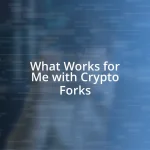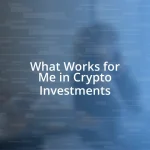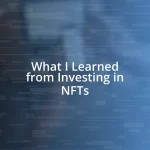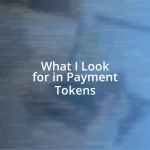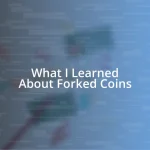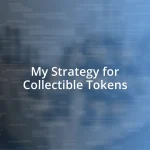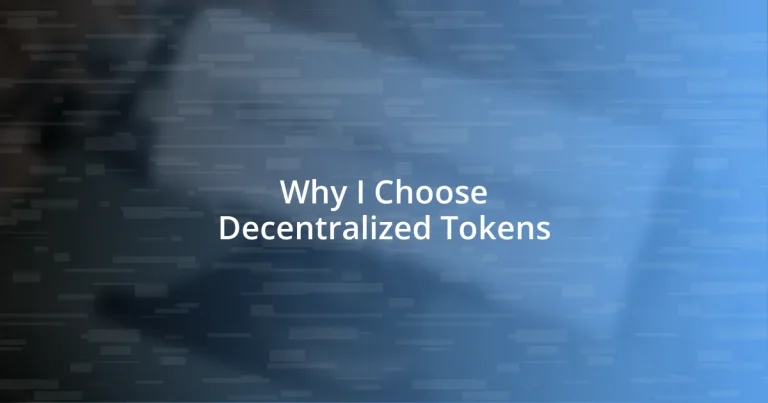Key takeaways:
- Decentralized tokens promote community governance and user empowerment, allowing individuals to influence project decisions and participate in the digital economy without traditional financial restrictions.
- Selecting the right token involves evaluating its use case, the project’s team and community, and analyzing financial metrics to ensure informed investment decisions.
- Awareness of risks such as market volatility, regulatory uncertainty, and security vulnerabilities is crucial for navigating the decentralized token landscape successfully.
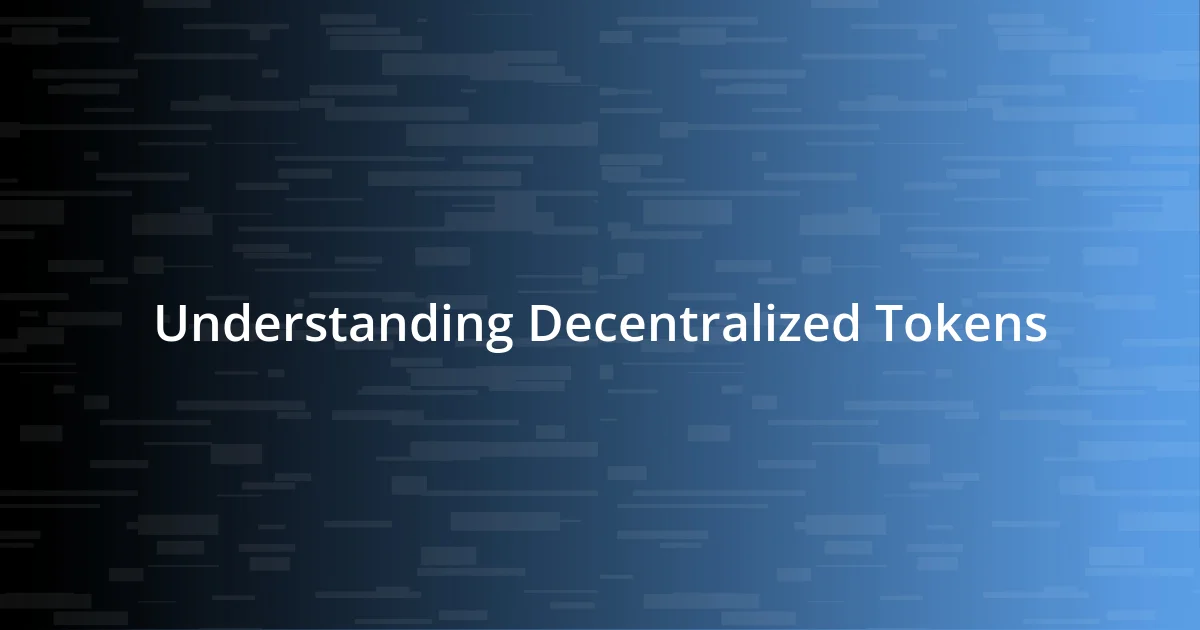
Understanding Decentralized Tokens
Decentralized tokens, a fascinating element of blockchain technology, operate without a central authority. This autonomy is what drew me in initially; the idea that I could participate in an ecosystem governed by its community felt revolutionary. Have you ever felt frustrated by traditional financial systems? That’s the allure of decentralized tokens—they promise empowerment and control that we often lack in conventional setups.
When I first ventured into the world of decentralized tokens, I was both excited and intimidated. It’s incredible to think that these tokens can represent anything from digital assets to governance rights within a network. Each interaction I’ve had with these tokens has deepened my understanding of how they shape community engagement and decision-making. For me, it felt like stepping into a new age of digital democracy.
Decentralized tokens encourage user participation and community governance, allowing individuals like me to have a real voice in the projects we support. I vividly recall voting in a governance proposal for a project I was passionate about; it was empowering to know my opinion mattered and could directly influence the future of that project. Do you see the potential in having a stake in decisions that affect your digital experience? That’s the beauty of decentralized tokens—they foster a sense of belonging and investment that I believe is the future of collaboration in technology.
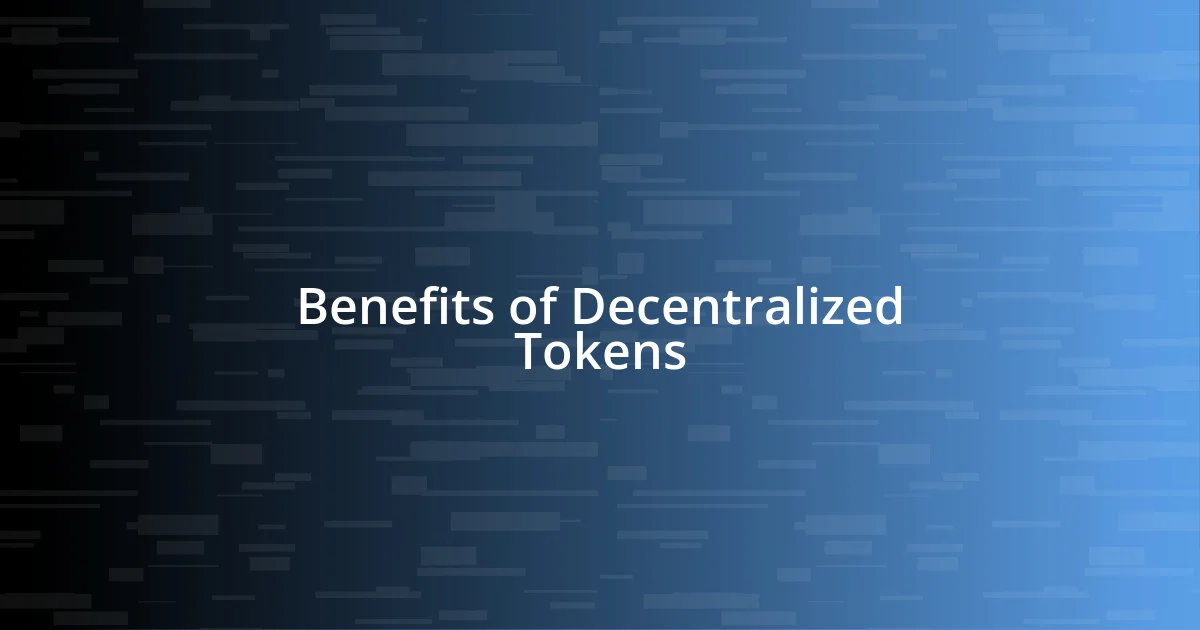
Benefits of Decentralized Tokens
Decentralized tokens bring a unique set of benefits that make them truly compelling. From my experience, one of the greatest advantages is the freedom they offer from traditional financial restrictions. I fondly recall a time when I was able to participate in a token sale without the usual red tape—no banks involved, just me and the blockchain. It felt liberating to take part in something so groundbreaking, where the only requirement was my understanding of the technology.
Consider these key benefits:
- Autonomy: Users have direct control over their assets without intermediaries.
- Community governance: Decisions are made collectively, allowing for a more democratic process.
- Access to global markets: Anyone can participate, regardless of geographical boundaries.
- Transparency: Blockchain technology ensures that all transactions are verifiable and traceable.
- Token utility: They can represent various functions, from governance rights to access in decentralized applications (dApps).
Each of these points resonates with me, as I reflect on the transformation decentralized tokens have brought to my financial interactions. It’s as if I’ve gained my own shortcut to participation in the digital economy, one vote at a time.
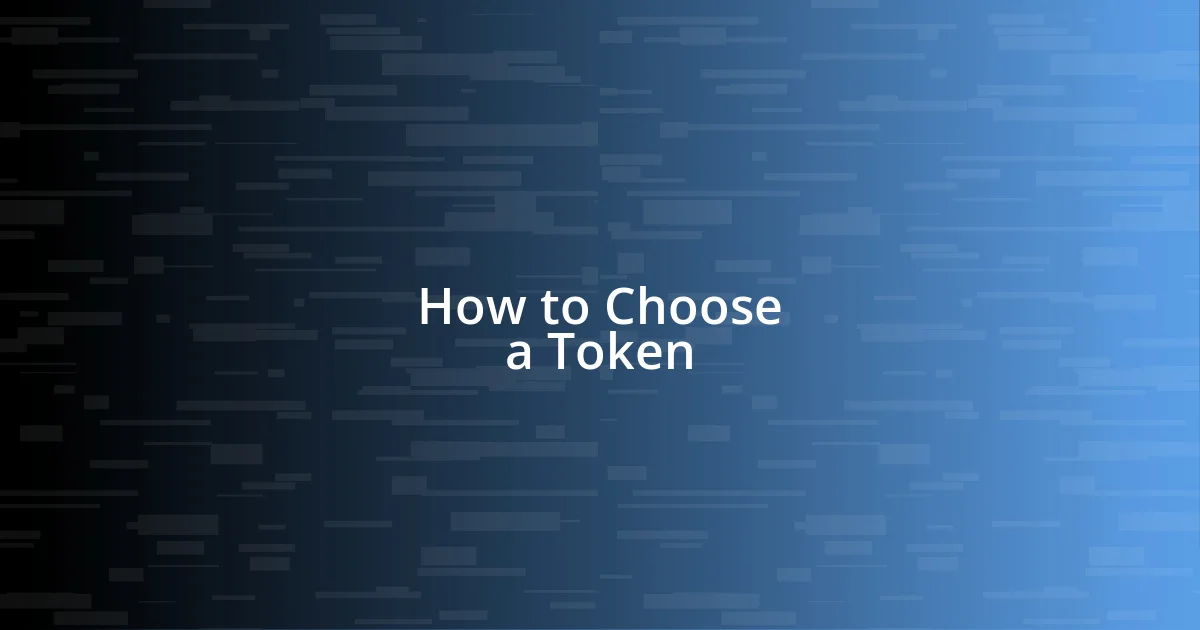
How to Choose a Token
Choosing the right decentralized token can be akin to selecting a new investment opportunity; there are factors you’ll want to consider closely. For me, the first step is always examining the token’s use case. What function does it serve? I recall a time when I was drawn to a token simply based on its potential but later found it lacked a compelling use case. It was a hard lesson learned, but it taught me to dig deeper into what makes a token valuable beyond its hype.
Another critical aspect is evaluating the project’s team and community. I’ve participated in communities that were vibrant and engaged, which directly influenced my decisions. When I found a project with transparent communication and a passionate development team, I felt confident investing my resources. Have you ever felt that energy in a community? It’s contagious and can play a huge role in the success of a token.
Finally, don’t shy away from doing your research on the token’s financial metrics, like its market cap and trading volume. I often compare this data to other tokens in the same space to determine its standing. Understanding the tokenomics gives clarity; it helped me realize whether I was jumping into a well-planned project or just another bubble waiting to burst. It’s important to feel fully informed before making any decisions—after all, the more you know, the less you leave to chance.
| Aspect | What to Look For |
|---|---|
| Use Case | Understand the function and utility of the token. |
| Team | Research the developers and their track record. |
| Community | Engagement levels and support from users. |
| Financial Metrics | Analyze market cap, trading volume, and supply. |
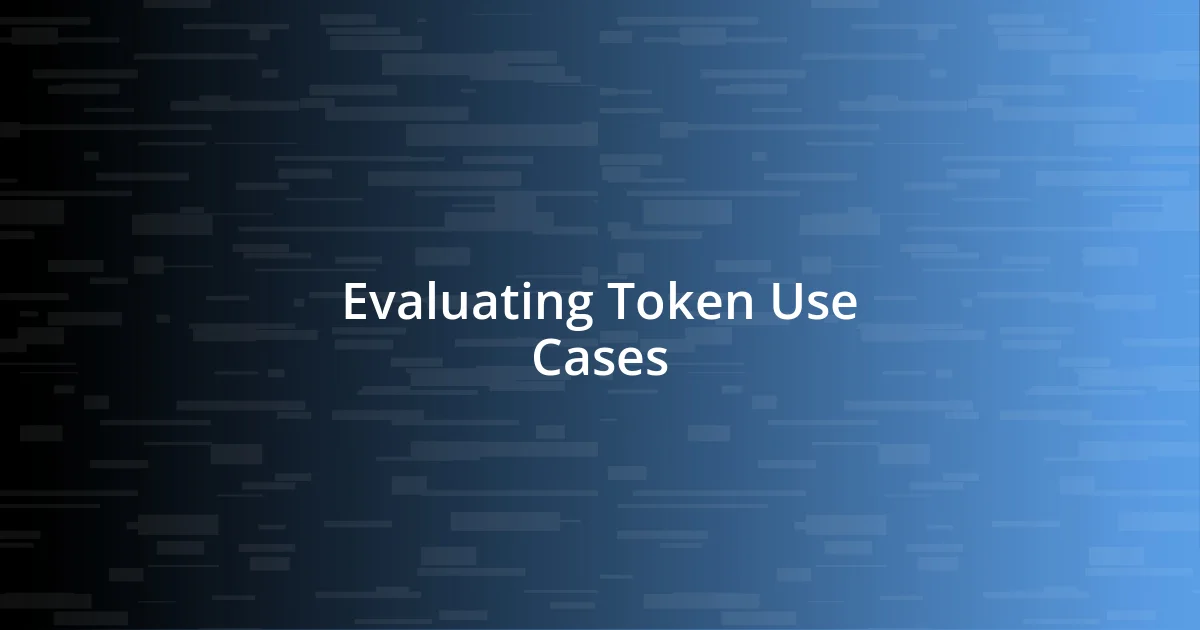
Evaluating Token Use Cases
Evaluating token use cases is crucial in my investment journey. I remember coming across a token that promised to revolutionize food supply chains. Initially, I was excited—such a noble cause! However, as I explored deeper, I realized its practical application was underdeveloped. It taught me the importance of confirming that a token’s vision translates into actual, implementable solutions.
One of the first things I always seek out is clarity in a token’s utility. For example, I invested in a token that provided access to exclusive online courses and workshops. The moment I realized my token offering tangible benefits was exhilarating; it felt like unlocking a treasure trove of knowledge. Doesn’t it resonate with you when a token enhances your personal growth directly?
Moreover, evaluating how well a token integrates within its ecosystem can determine its long-term viability. I once participated in a project where tokens granted access to unique features in a game. The sense of community and engagement around it was palpable, feeding my enthusiasm. Have you ever felt that excitement when a token’s mere existence shapes a vibrant community? It’s a unique feeling that underscores the real-life implications of digital assets.
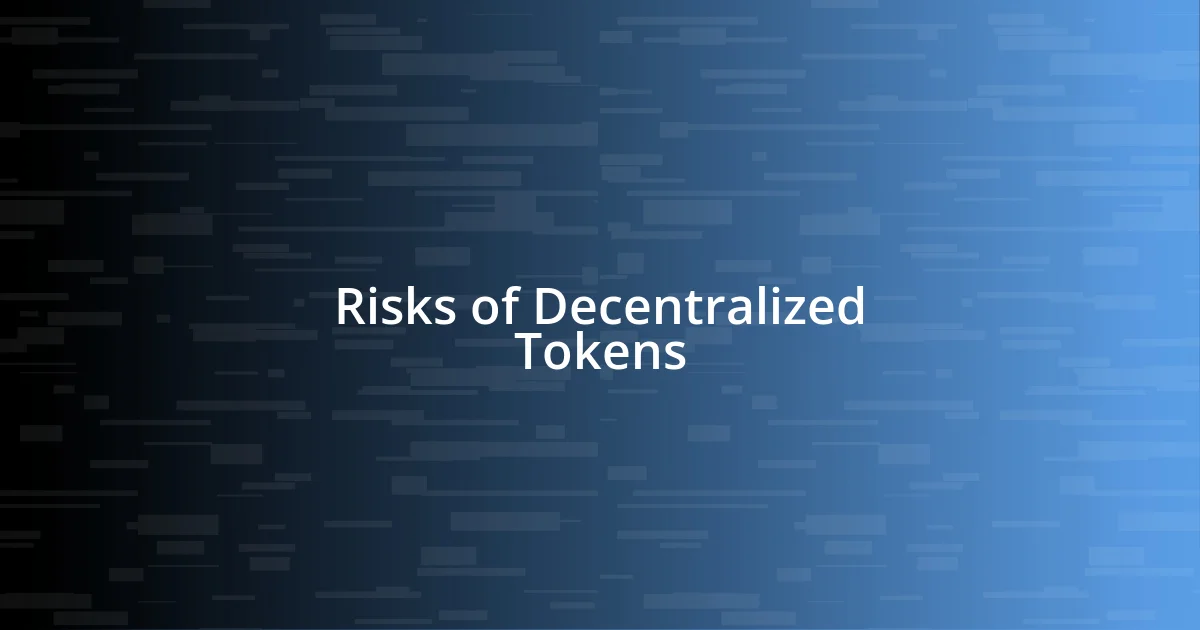
Risks of Decentralized Tokens
When considering decentralized tokens, it’s vital to acknowledge the risks involved. One of the most concerning aspects is market volatility. I remember a time when a token I invested in skyrocketed one day and plummeted the next. This wild fluctuation taught me to brace myself for unexpected shifts; it’s a bit like riding a roller coaster where the highs can feel exhilarating but the drops leave you queasy.
Another risk that often looms is regulatory uncertainty. As I’ve navigated the decentralized space, I’ve encountered varying rules and regulations based on my location. Just last year, a promising project I was following faced scrutiny from authorities, leading to significant price drops and investor panic. Have you ever felt that unsettling anxiety when market news turns sour? It serves as a reminder that the regulatory landscape can shift, impacting not just specific tokens but the entire market.
Security risks also can’t be overlooked. I recall a community project where hackers exploited vulnerabilities, resulting in significant losses for many investors, including me. It’s sobering to realize that not all platforms are created equal. Questions linger: How secure is the smart contract? Has the code been audited? Evaluating these aspects can mean the difference between a sound investment and a costly mistake.
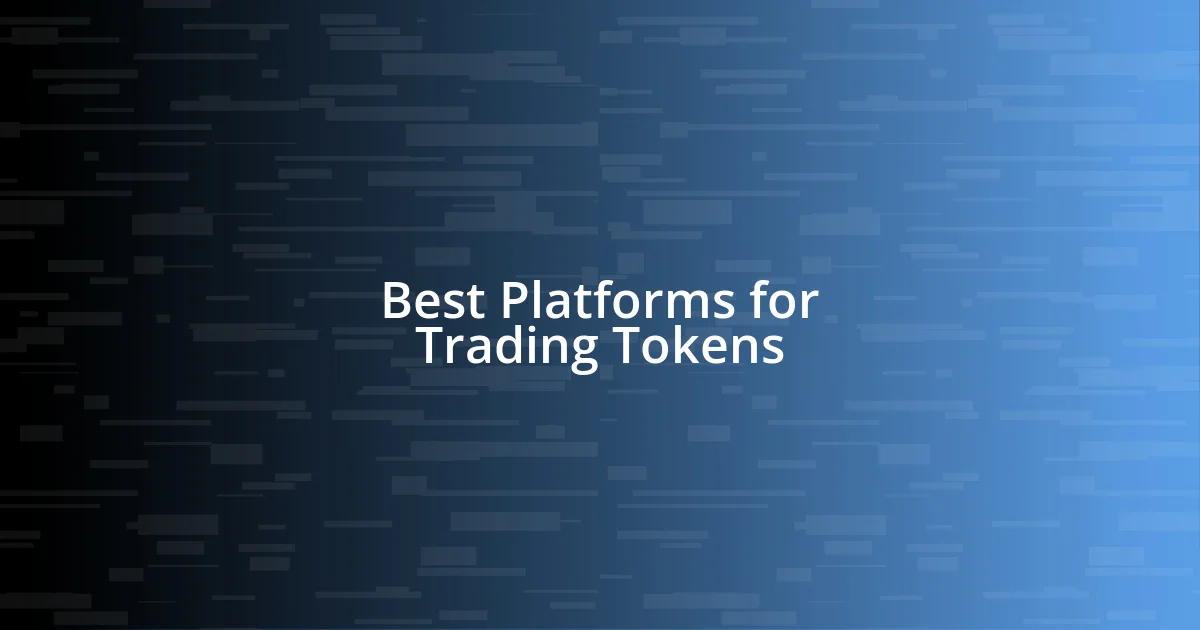
Best Platforms for Trading Tokens
When it comes to choosing the best platforms for trading tokens, I’ve found that user experience can vary dramatically. I once started trading on a popular exchange with slick marketing, only to struggle with confusing interfaces during my first trades. It made me realize that a platform’s usability is as crucial as the tokens themselves. Have you ever felt frustrated by a website that just doesn’t click for you? It’s a definite red flag for me.
Another key factor is liquidity. I remember trading a lesser-known token, and finding it challenging to sell despite my desire to exit my position. The lack of buyers at that moment led me to question my choice of platform. A platform that ensures ample liquidity simplifies transactions and enhances your trading experience. Don’t you agree that having peace of mind when trading can elevate the entire process?
Security protocols are also non-negotiable in my trading journey. I once chose a platform based solely on low fees, only to later read about potential vulnerabilities in their security measures. That experience reshaped my criteria entirely. I always check for two-factor authentication, cold storage of funds, and whether the platform has been audited. After all, it’s not just about trading; it’s about safeguarding your investments, right?
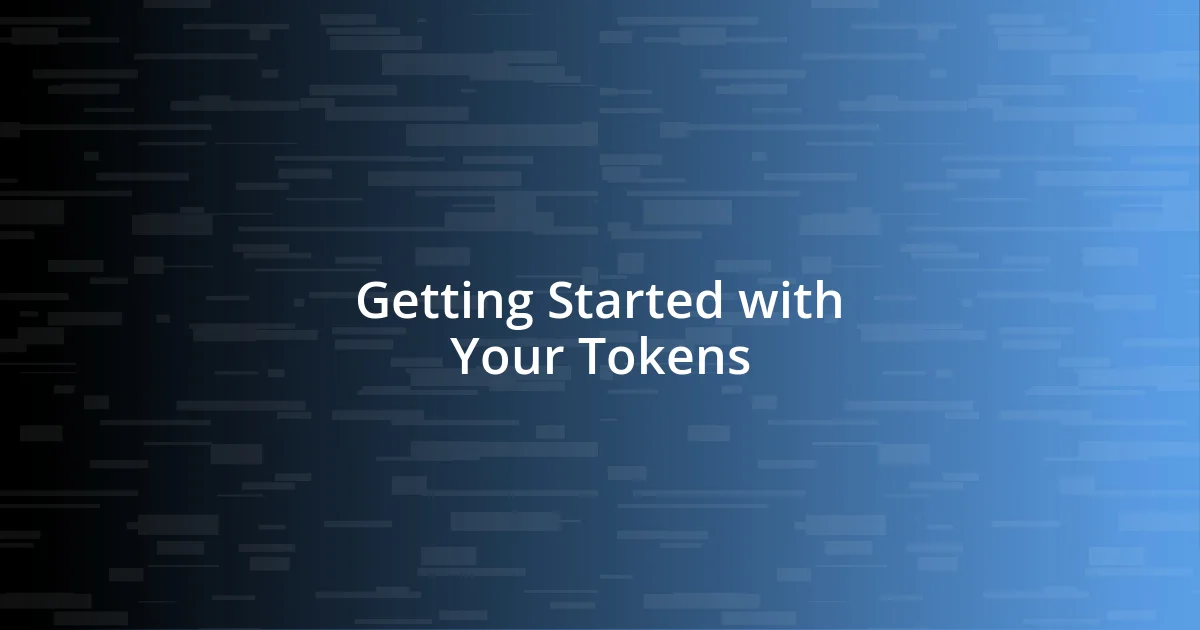
Getting Started with Your Tokens
To begin your journey with decentralized tokens, familiarize yourself with the essentials of blockchain technology. When I first started, I found myself lost in a maze of jargon. It felt overwhelming at times. Have you ever read something that made your head spin? I soon realized that grasping the fundamental concepts—like wallets, exchanges, and smart contracts—could significantly enhance my confidence. Understanding these basics is the first step toward making informed decisions.
Next, you’ll want to choose a reliable wallet to store your tokens securely. I remember the first time I set up a wallet—it was like preparing for a big move. I felt a mix of excitement and a little anxiety about making the right choice. Should I go for a hardware wallet or a software one? After some research, I opted for a hardware wallet for extra security. Choosing a wallet that suits your needs can prevent future headaches, so take the time to explore your options.
Once you have your wallet ready, it’s time to dive into the token buying process. Initially, I was hesitant, questioning whether I should jump in or wait. A friend encouraged me to make a small investment, just to test the waters. That advice turned out to be gold! Starting small reduces risk and lets you learn the ropes without feeling entirely exposed. Isn’t it funny how a simple step can lead to greater opportunities later?

